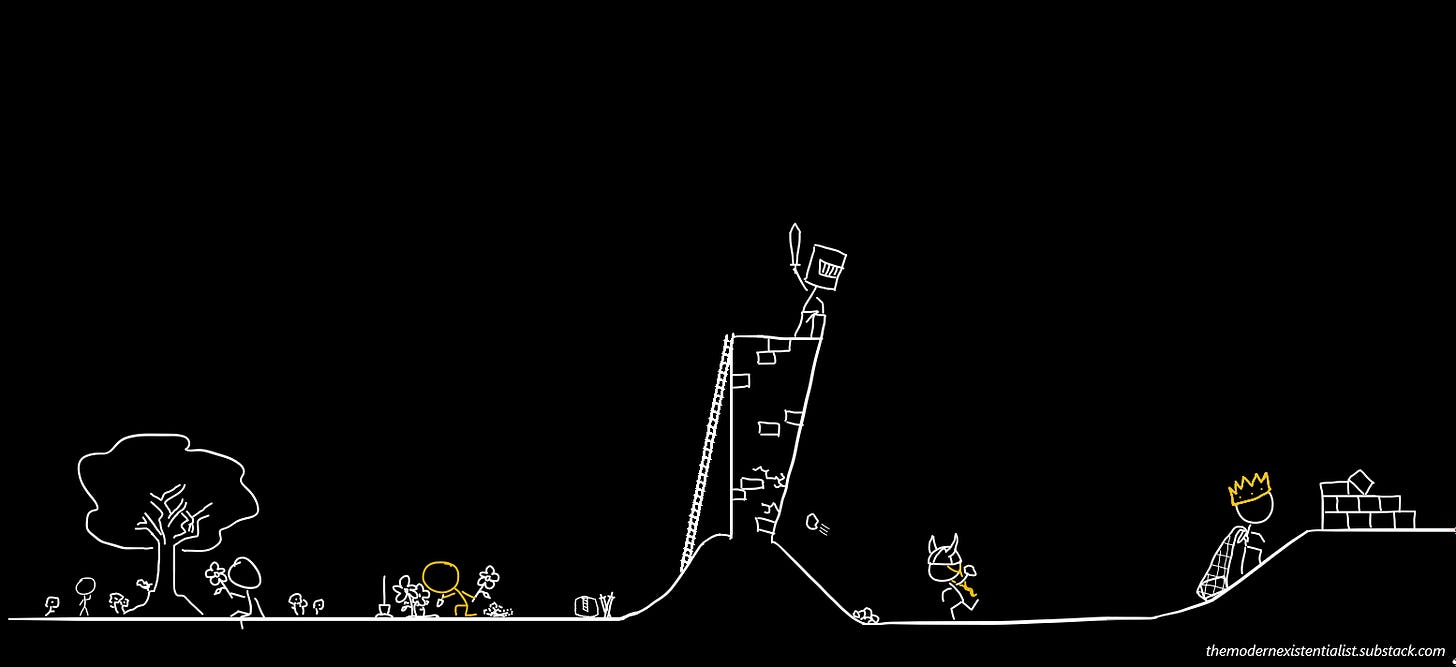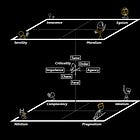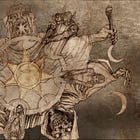6 | SERVILITY : the Sycophant
Method & Madness | Book II : Archetypical Philosophies
The slave—powerless to act on his will and desires as the master can—turns inward, cultivating a sense of bad conscience. He copes thusly with his condition beneath the master’s morality.
—F. Nietzsche (ab. M. Hise)
For the woman-in-love, existence revolves around her man; his opinions, his actions, and his desires become hers. She loses her freedom and her sense of self, thus subsumed to the point where she no longer exists as an independent being.
—S. de Beauvoir (ab. M. Hise)
When a pack of wolves makes a kill, coyotes circle—eager, and ready. While lions feast upon the plains, vultures watch with hungry eyes. Lurking at the fringe with eyes of envy, they wait as the hunters take their fill—and, as soon as they’re done do our scavengers rush eagerly to the fore, diving in to fight and jockey for scraps amongst their lowly peers.
Such is the life of the Servile—the Sycophants—who judge themselves to be weak and unable: their own Power lacking. And so, do they choose to latch onto the strength of their betters—to people who command greater Agency than they—in order to persist and survive… and perhaps, to even gain a chance to taste the fruits of the labor of greater men.
The Servile is thus the one who believes that there are two kinds of people in this world:
The clever, and the able.
There are those who are blind slaves to their labor—who work themselves desperately to the bone, plying their various talents and skills in a perpetual struggle of actualization. Then, there are those realistic and wise; who’ve realized that, while others remain so capable and willing, they themselves hold in their hands a unique opportunity to lead easy lives. Thus, they—being the clever Sycophants—attempt to shirk their responsibilities, replacing their obligation to labor with songs of praise and admiration instead; doing just the bare modicum of actual work necessary to maintain an appearance of utility.
The Servile crave what the Pragmatist owns—fruits born of hard labor, and the safety of home. Lacking the strength and conviction, however, to simply just take what they want—to challenge the Pragmatist-king for his throne—they choose to bow in submission instead, prostrating themselves and praying that someone might be naïve enough to throw open their doors.
While the Complacent sits comfortable in his belief that he deserves a piece of paradise—that, because the world is an Ordered place, he’s therefore entitled to partake of the fruit of a garden which he neither maintains nor owns—the Servile is the one who’s realized that there’s no such thing as entitlement:
Instead, only what one is permitted to take.
And so, do the Servile endear themselves, attempting to convince the master of Eden that they serve a purpose—that they provide value, can make themselves useful, and do actually earn their keep.
The Sycophants stare with eyes of envy, coveting the Pragmatist’s wealth. They desire to hold what their master owns—good food, water, and shelter from the storm: an Eden shielded from primordial Chaos by the Agency of men loyal to the idea of home. But they, being weak, believe that they have no choice but to grovel and serve. And so do they strive—like parasites—to reap the rewards of hard labor without having labored themselves; to sap away at the lifeblood of Eden, stealing its Agency to use as their own. But then…
“What if—?”
The Servile may steadily begin to wonder.
What if there was, in reality, some way that the weak could defeat the strong? To unseat the master, and thereafter claim the garden as their own? A usurper doesn’t, after all, necessarily need to be able or strong. Instead, he need only be clever enough… to convince everyone else that he is.
Philosophy: a mindset. a worldview. The way that one chooses to see the world, and thus approach living one’s life.
Αρχή | archí: origin
Τύπος | týpos: form
An Archetypical Philosophy is the logical basis of a person’s attitude, derived from observation of how he-or-she chooses to exist.

















